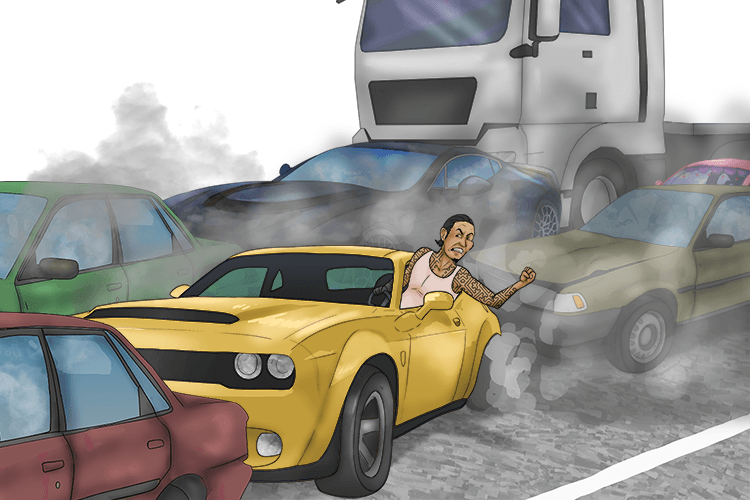Traffic Congestion – the effects of overuse of transport networks, for example slower speeds, traffic queues and longer journey times
To remember what traffic congestion means use the following mnemonic:
If the traffic continues to be this bad, my suggestion (traffic congestion) is never going at this time again. It is so slow and the traffic queues are so long.

Traffic congestion in the UK alone costs businesses nearly £1 billion a year in lost productivity. Delayed delivery times, increased labour costs and extra fuel usage all contributes to this. Most companies operate in large towns or cities, meaning that traffic queues are unavoidable in many occasions.
Operating in an area with high levels of traffic congestion can also lead to lost customers. Customers who have difficulty getting to a business may choose to go to another business instead.
Employees may find it difficult to commute to work in the morning in an area that is badly affected by rush hour traffic. This can even affect potential employee’s desires to work there. For example, the average time to get to work in the morning for people who live in London is an hour and a quarter, so two and a half hours of travelling per day.
At the same time, operating in an area where there is very little traffic can present problems as well such as access to a smaller percentage of the workforce and less potential for impromptu walk-ins due to the reduced visibility of the business. A middle ground between these two extremes is an ideal location for a business.




